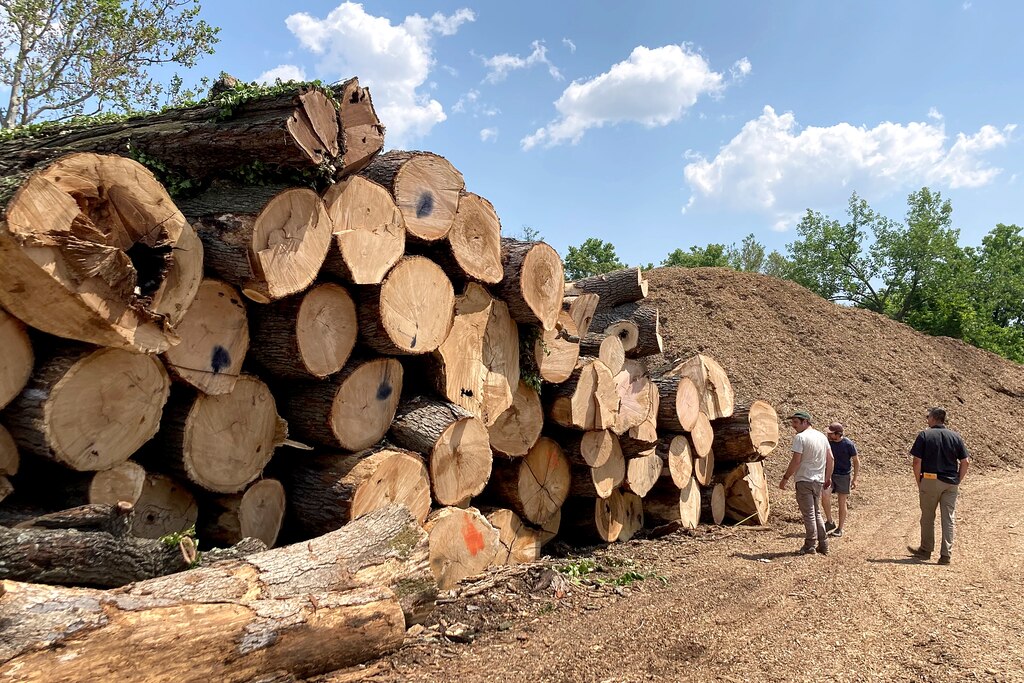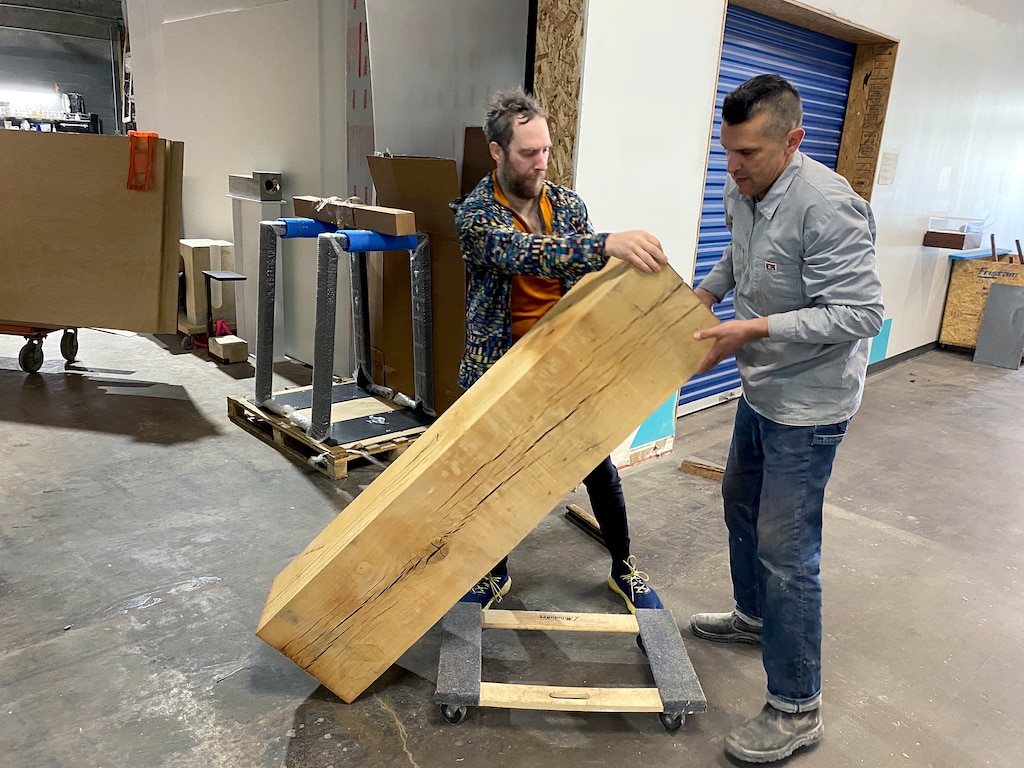When Liz Vayda first drove through the city’s old lumberyard at Camp Small, she felt transported.
The stacks of huge logs towered over her van. She wasn’t in North Baltimore anymore, but in some logging camp of the Pacific Northwest.
Vayda had come to buy cherry and oak slabs for her boutique houseplant shop, B. Willow. For craftsmen like her, Camp Small became has become an oasis amid trends in the commercial lumber industry toward higher prices and lesser quality.
Here in the shadow of Interstate 83, one could buy an 8-foot slab of ash to build a dining table — and for the same price as a few sheets of plywood at Home Depot.
The Baltimore Banner thanks its sponsors. Become one.
The 5-acre lumberyard near Woodberry milled Baltimore’s felled trees to become fine furniture, artwork, park benches and community garden beds. The fruit trees were chipped and sold for BBQ pits. Camp Small even supplied the toy logs for the elephants at the zoo.
Now, Baltimore’s community of wood craftsmen and artisans are left to wonder what will become of the lumberyard after a massive fire ripped through the site late Thursday. More than 100 firefighters worked to contain the blaze overnight. Smoke engulfed I-83 and city officials took the unprecedented precaution of closing the highway.
“I really hope that they will be up and running in the short term. It’s such an asset,” Vayda said. “In a city, you don’t think about what happens to a tree when it gets cut down.”

Indeed, Baltimore didn’t think much about it for decades. Since the 1930s, the city had dumped old trees from its parks and sidewalks at Camp Small in the Jones Falls Valley, then routinely paid to have the debris hauled away. A $100,000 loan from the Baltimore Innovation Fund in 2016 funded equipment, staff and a radical idea — to turn the city’s dumping grounds for trees into a zero-waste lumber mill.
Grand old trees from Baltimore parks are valuable building materials. Crews routinely cut down dead and diseased trees. The logs are milled at Camp Small and sold as slabs to everyone from boutique carpenters to homeowners building bookshelves. The site takes in more than 8,000 tons of wood a year — enough to fill a football field with a 30-foot-high pile of timber, according to the city.
The Baltimore Banner thanks its sponsors. Become one.
The program saved money, from the expense of hauling away debris to supplying wood chips and timber for public works projects. That’s in addition to the revenue made from the retail shop. In the last eight years, Camp Small emerged as a national model in urban forestry. City planners from as far away as San Diego, Sacramento and Minneapolis visited the Baltimore lumberyard.
Read More
On Friday, Andy Karnes, of Area Fabrication, a custom furniture shop in Hampden, showed off two 8-foot slabs of ash that had been milled and dried at Camp Small. The prized American hardwood was famously used in early baseball bats.
“You can’t really buy ash in this width anywhere,” he said.
Karnes has bought ash and other native hardwoods from Camp Small to build side tables, credenzas and buffets. He sourced wood from Camp Small to build the countertops for HEX Ferments in Govans and the restaurant Nana in Stoneleigh.
With the wide ash slabs, he planned to make a dining table. The hardwood table should last for generations, he said.
The Baltimore Banner thanks its sponsors. Become one.

In a workshop next door, at the Union Collective, Mark Melonas, of Luke Works, was drying thick, white oak timbers from Camp Small to become outdoor benches. He used to drive to specialty lumberyards in Western Maryland, Pennsylvania and West Virginia for old-growth timber of such size. Borrowing a line from the TV character Ron Swanson, he called white oak “the king of woods.”
“It’s not something you go to a store and buy,” he said.
Both men worried that the fire at Camp Small would send them back on the road in search of decent lumber.
Jennifer Goold, of the nonprofit Neighborhood Design Center, said Camp Small tapped into something distinctly Baltimore.
“We really are like a make-do culture,” she said. “Anything can be turned into a piece of art, and the team at Camp Small was really good at it.”
The Baltimore Banner thanks its sponsors. Become one.
For $60 a year, residents can chop firewood at Camp Small and take it home. Compost and mulch are available, too.
Former Baltimore Budget Director Andrew Kleine oversaw the initial loan to Camp Small, and the project still holds a special place for him. He hopes Camp Small will recover and reopen.
“We hear so much about how government is wasteful and incompetent,” he said. “This is a total counterexample of government being resourceful and innovative.”





Comments
Welcome to The Banner's subscriber-only commenting community. Please review our community guidelines.